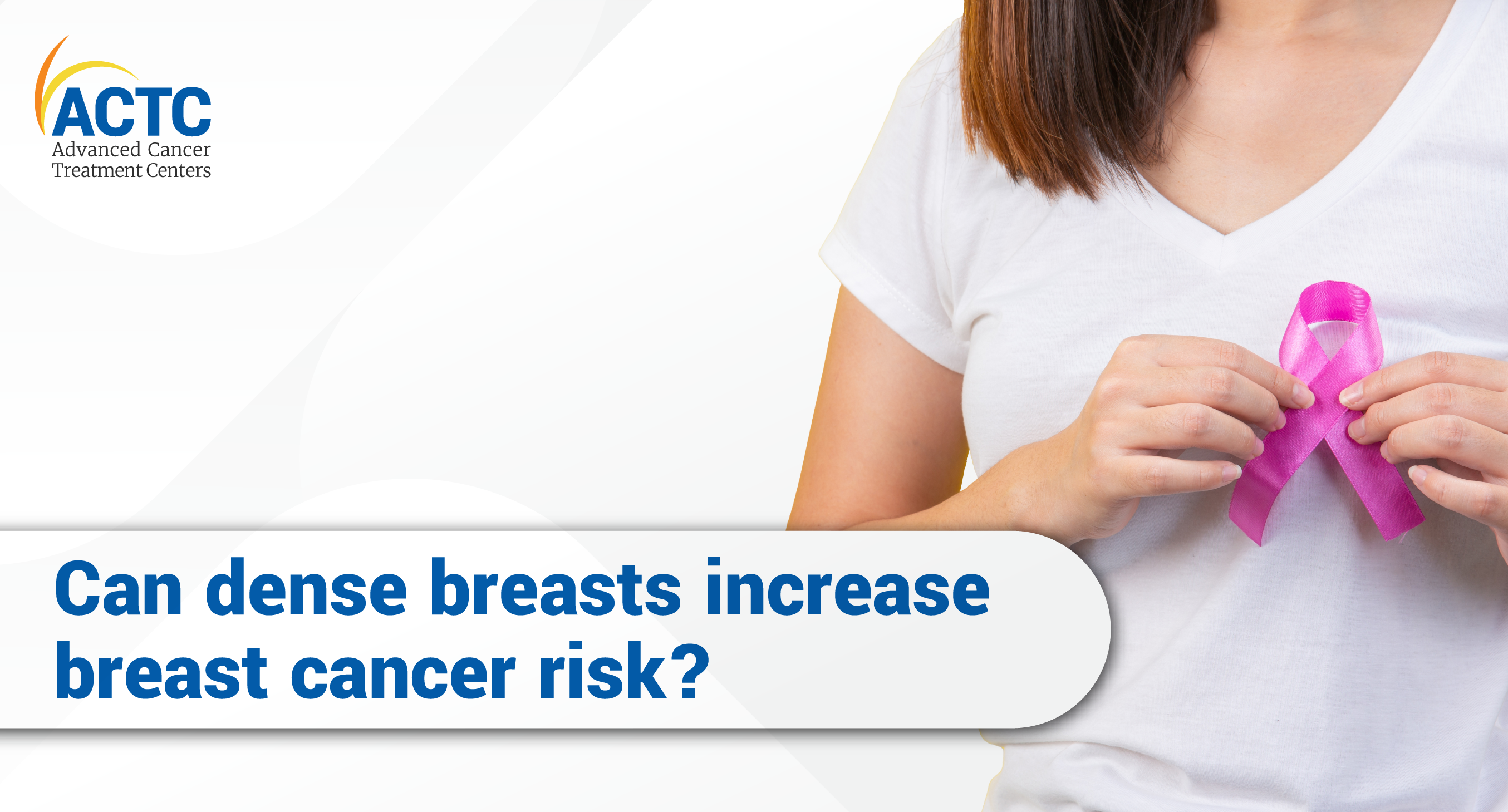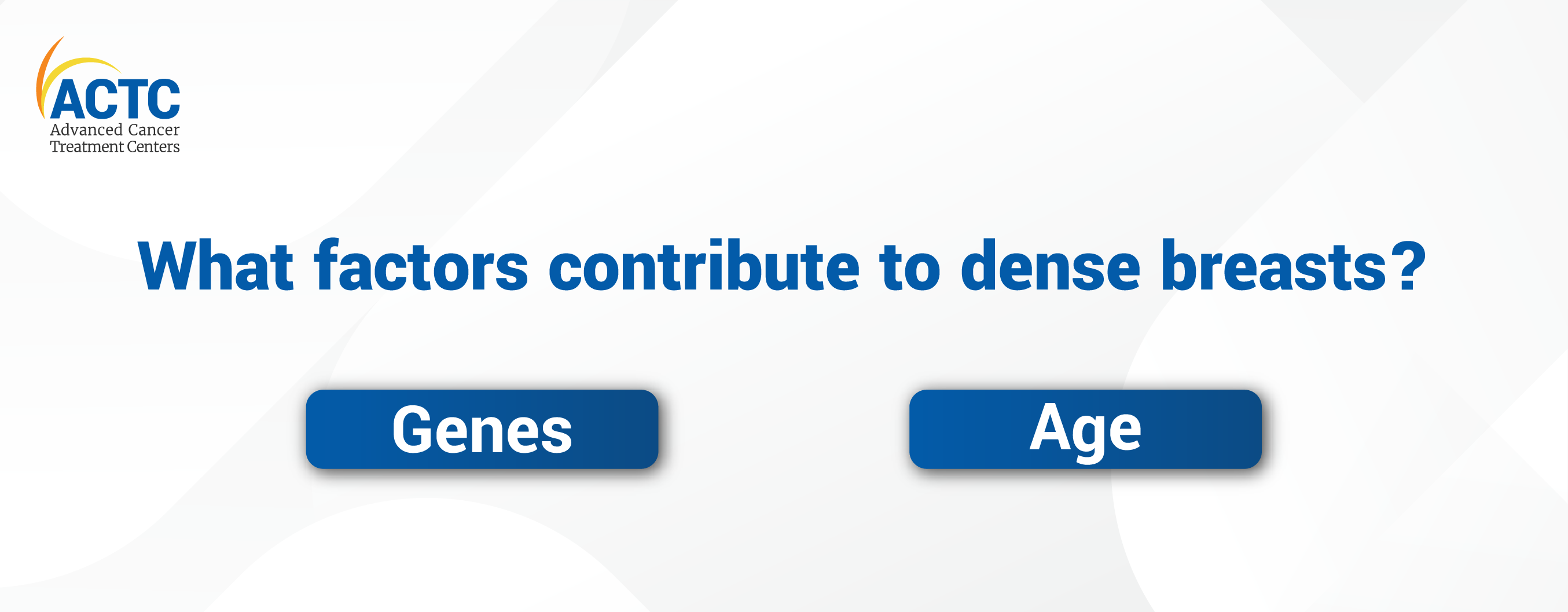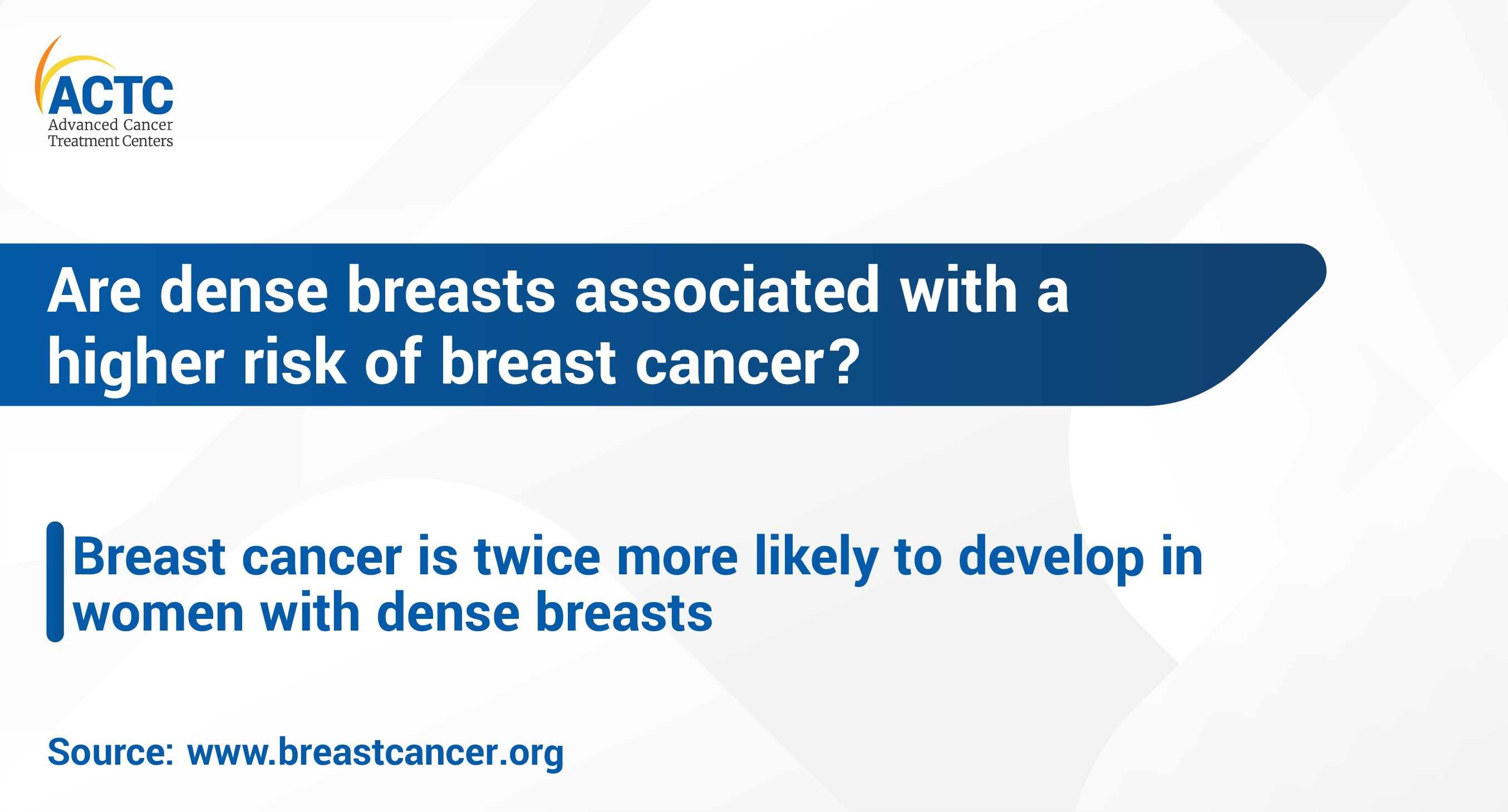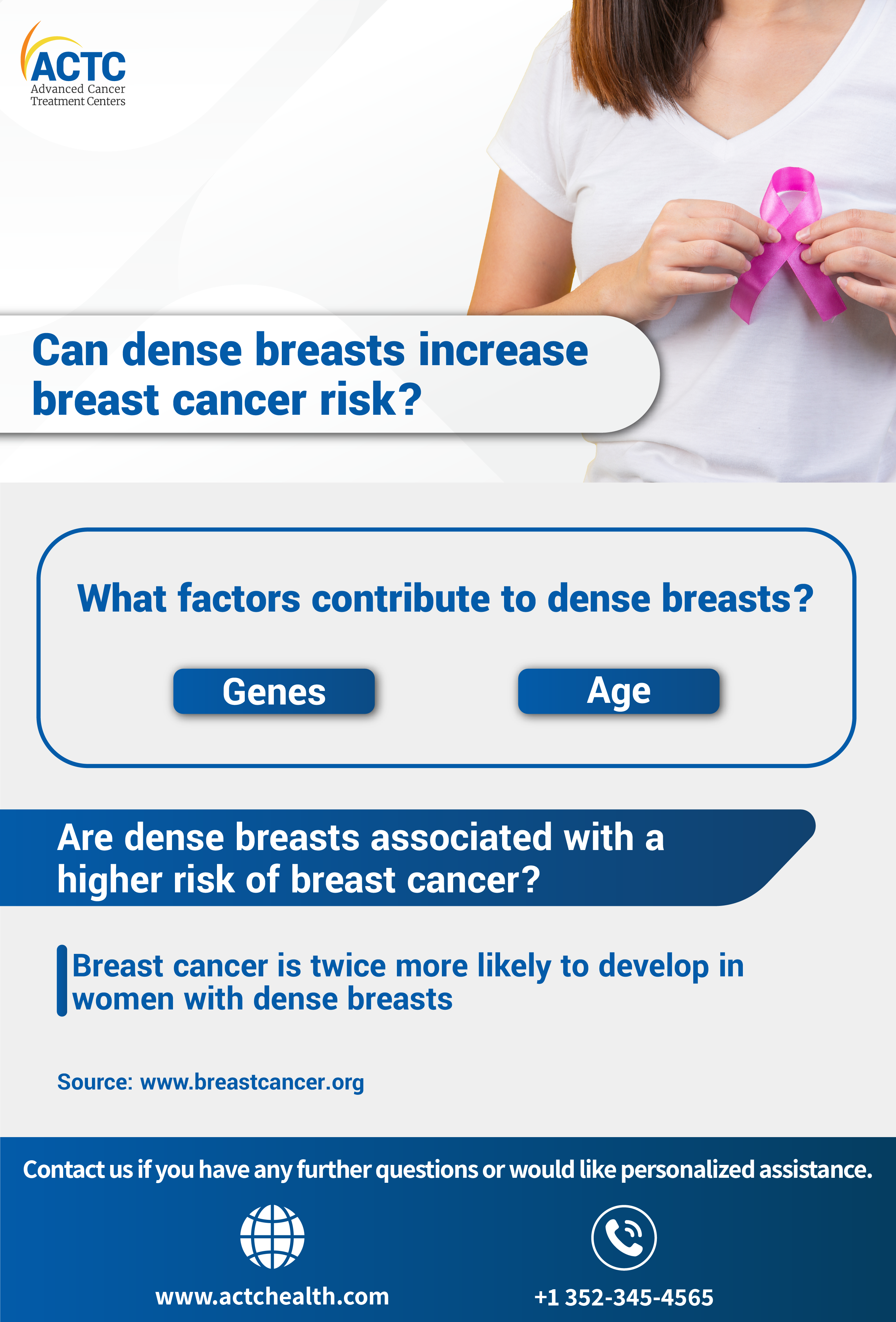
Book a Consultation
Thank you!
Your form has been sent successfully.



August 31, 2022
Did you know that you should consider the density of your breasts? It can affect your breast cancer risk factor and determine what type of mammogram you should get.
Breast density isn’t something you can control and it often changes over time. It is unrelated to how your breasts feel or seem. It has to do with how they look on a mammogram.
If you have dense breasts, you will be told by the doctor or technician during your mammogram. The law in many parts of the U.S. requires radiologists to inform you if you fall into that category. Having dense breasts is a normal and very common condition. However, you may not know exactly what it means or what to do. Here are answers to some general questions about dense breasts you may have.

Breast tissue comprises glandular, connective, and fatty components. The density of these tissues on a mammogram analyzes how much of each type of tissue is present. Compared to fatty tissue, dense breasts possess relatively high amounts of glandular tissue and fibrous connective tissue.
If a woman has dense breasts, only mammography can reveal this. Both a clinical exam and a self-exam cannot detect dense breast tissue. Because of this, these are also known as mammographically dense breasts.
Age and genes are the primary factors. Breast tissue tends to be denser in younger women who have higher estrogen levels in their bodies. Additionally, you are more likely to have dense tissue if your mother did. Body weight or build has no influence on having dense breasts. There is a decrease in breast density after menopause as estrogen levels decrease.
Read More: Metastatic Breast Cancer Treatment Options
It is true that women with dense breasts are more likely to get breast cancer than those with fatty breasts. Research has shown that dense breasts:
The odds of developing cancer in the opposite breast are nearly twice as high for women who have been diagnosed with breast cancer and have dense breasts.
Read More: 8 Standard Tests And Procedures In Breast Cancer Diagnosis
In the United States, it's estimated that 43% of women between the ages of 40 and 74 have dense breasts.

Although you can't change the density, knowledge is power. Being aware of your breast density classification can help you and your doctor make informed choices about your care. Your lifestyle and nutritional changes help to reduce density up to a certain level. Consult with the professionals for the right course of action.
Advanced Cancer Treatment Centers is one of the leading cancer treatment centers in Florida. We have some of the best oncologists in Florida working with us on our team. To schedule a consultation, call 352-345-4565.



January 07, 2026
A chemo port is a small device placed under your skin that makes recei...
KNOW MORE

December 24, 2025
It's natural to wonder if testosterone replacement therapy (TRT) is sa...
KNOW MORE

December 24, 2025
A rash that will not calm down is scary, especially when it changes or...
KNOW MORE

December 24, 2025
Florida’s lung cancer burden remains significant and affects many fa...
KNOW MORE

December 24, 2025
A partial hysterectomy, also called a supracervical hysterectomy, is s...
KNOW MORE

December 24, 2025
Finding a rash on your breast can be unsettling, but remember, many ra...
KNOW MORE
